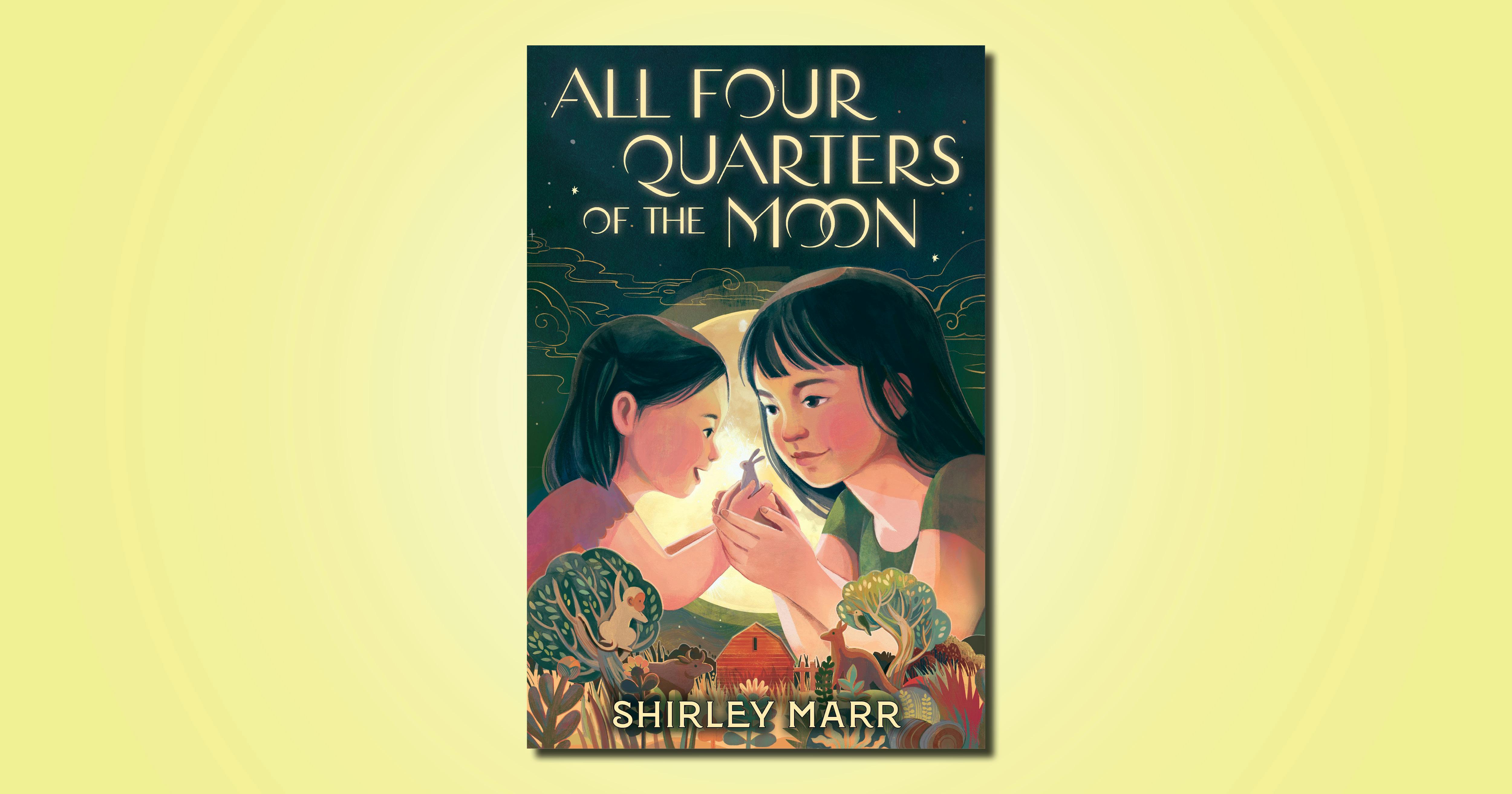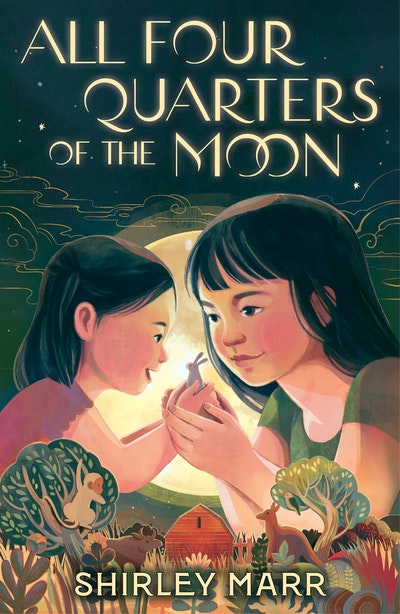There’s so much to talk about in this big-hearted story starring sisters and storytellers Peijing and Biju, a lost family finding their way, a Little World made of paper, a Jade Rabbit, and the ever-changing but constant moon . . .
- Did you ever invent your own world you could escape into, like Peijing and Biju do with their Little World made of paper? What kind of world did you invent and how did you bring it to life? Are there creative activities – such as writing, music, painting, drawing or singing – that help you to relax?
- What do you think the storytelling scenes at the beginning of each chapter add in terms of our understanding of the characters and even, possibly, ourselves and the world around us?
- Peijing and Biju eventually stop creating the Little World – have they grown out of it, or do they no longer need its comfort now that their family has found their way? Do you remember toys, activities or hobbies that you grew out of? What were they? How do you feel about them now?
- The conflict between respecting and upholding tradition versus embracing change is a key element in All Four Quarters of the Moon. Can you think of examples from your own family of rules, customs, traditions or expectations that have shifted during times of change or between generations? How can differences be peacefully resolved? How can we develop resilience during these times?
- The tradition of making mooncakes for the Mid-Autumn Festival has been in Peijing’s family for generations, possibly even centuries. What is a favourite recipe or meal that is special to your family, and what makes it special?
- Shirley says, ‘I wanted to take a fresh look at my own story and find something joyful. What I found was my little sister . . . All Four Quarters of the Moon is a story for two.’ Why is Biju so important to Peijing? What are Peijing’s feelings towards Biju at the beginning of the story, and how do they change? What does Peijing learn from her little sister?
- Peijing feels a profound sense of responsibility for her family. Why do you think she feels this way? How does she learn to overcome this burden? Have you ever experienced a similar overwhelming feeling in your life? How did you work through it?
- The Guo family take the concept of honour very seriously. How does Peijing struggle with the concept of honour in their new home? How do the Guo family learn to reconcile their traditional understanding of honour in a foreign setting? What does honour mean to you in your own life?
- Who or what do you think the title – All Four Quarters of the Moon – symbolises? What role does the moon play throughout the story, and how do the phases of the moon reflect Peijing’s journey?
- What do you know about Chinese myths, such as the Jade Rabbit and the Moon Goddess, the animals of the Chinese zodiac, or dragons, lions and nians? Have you read any other books or seen films that are retellings of Chinese legends? How did they tell the stories differently to how they are told in All Four Quarters of the Moon?













